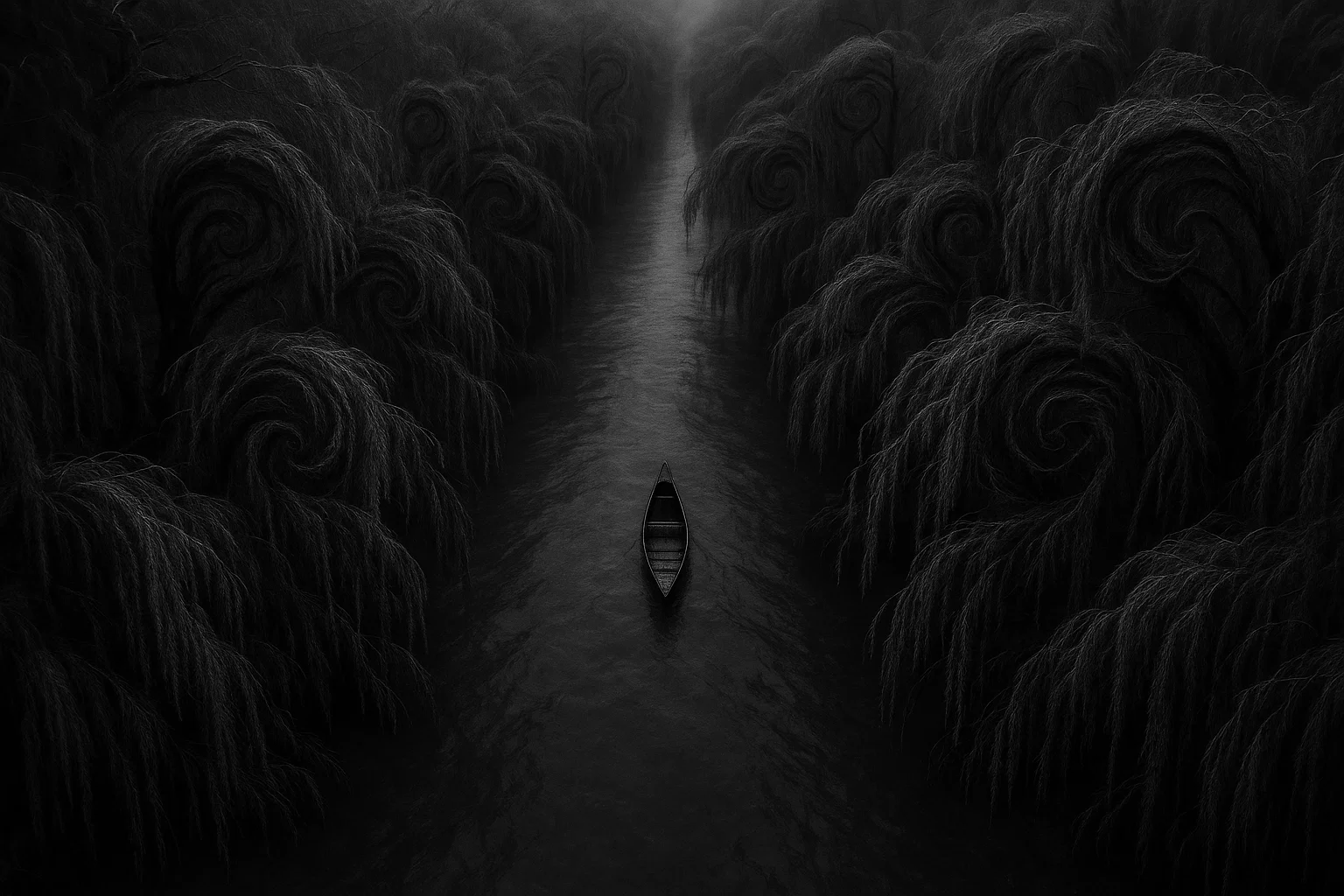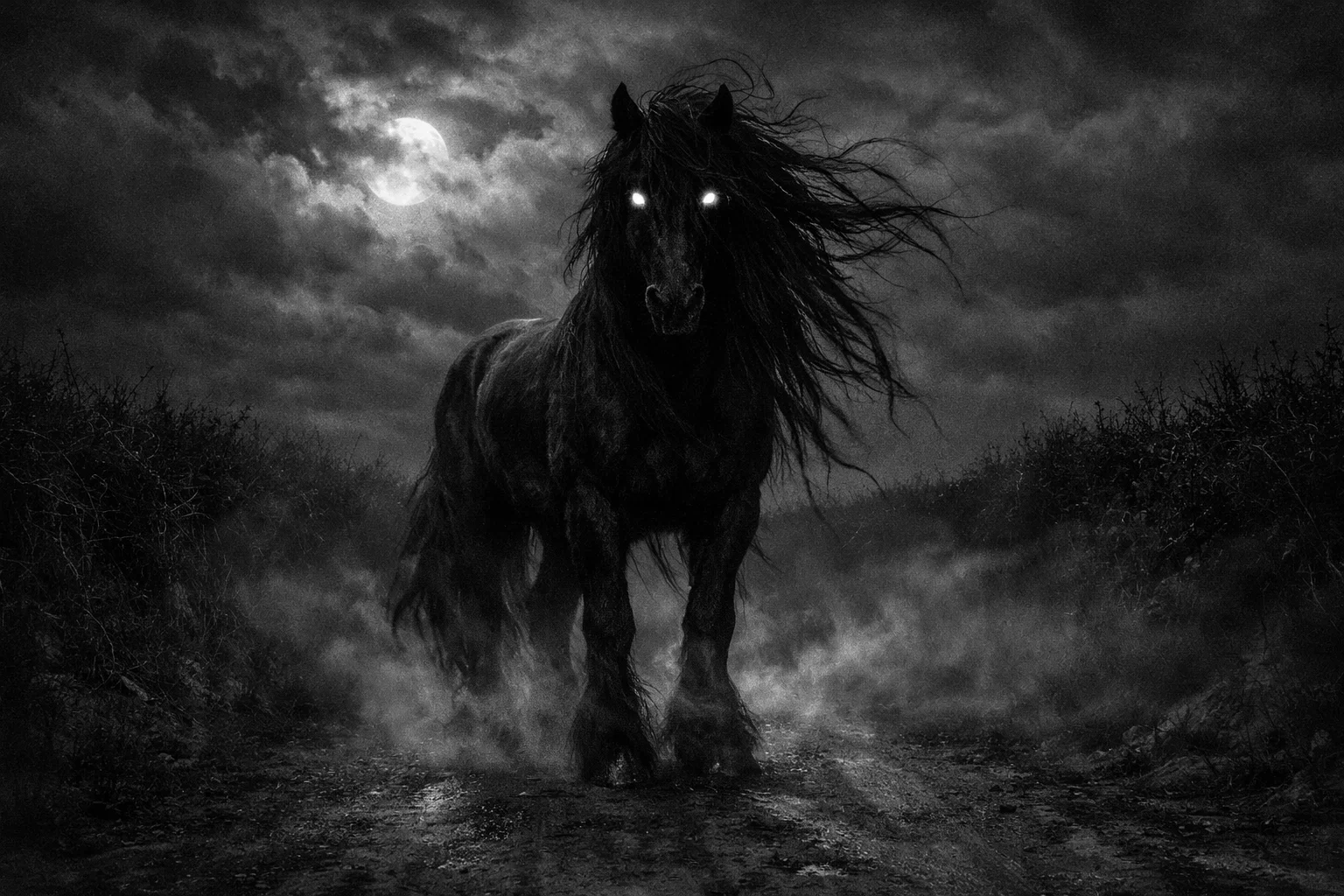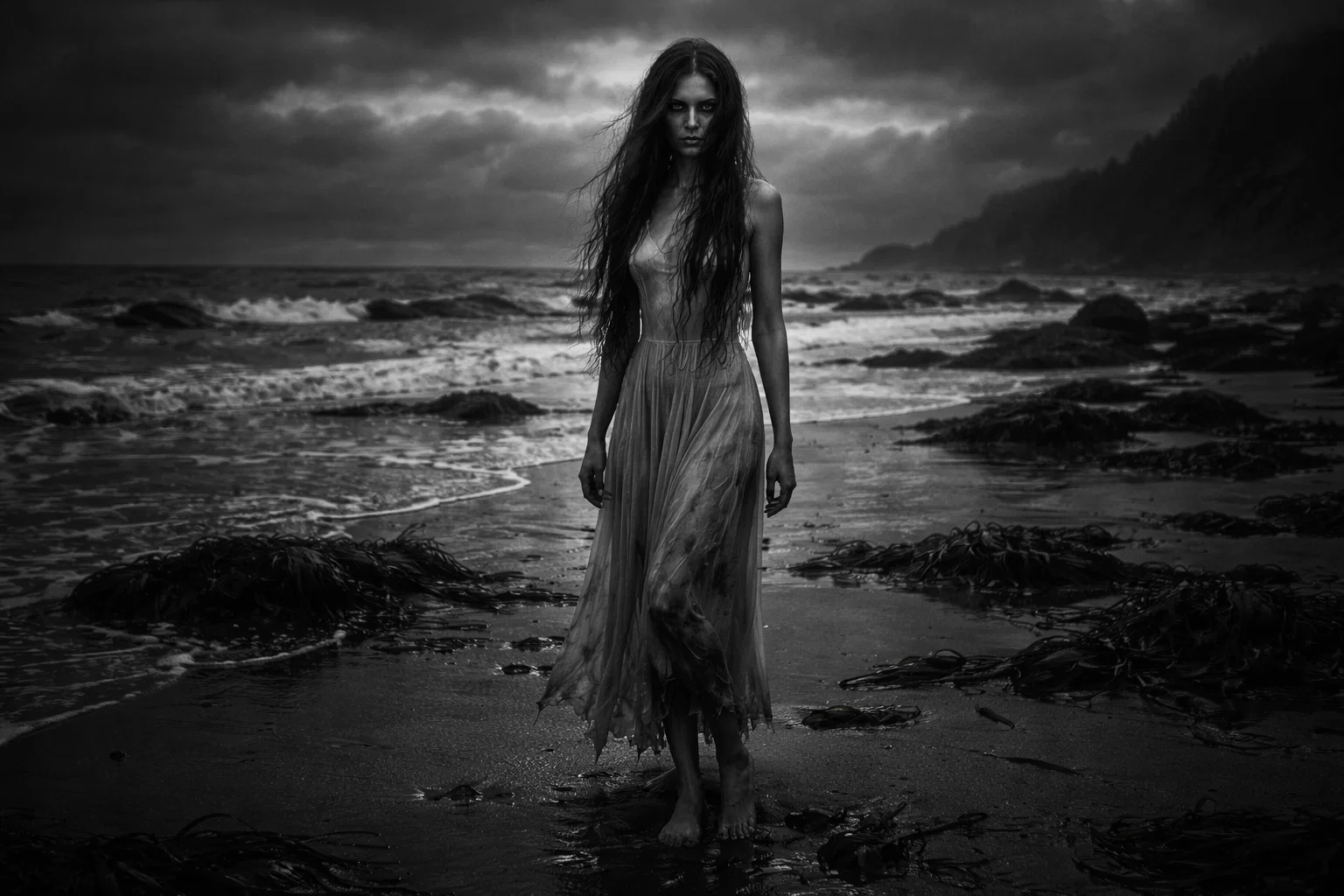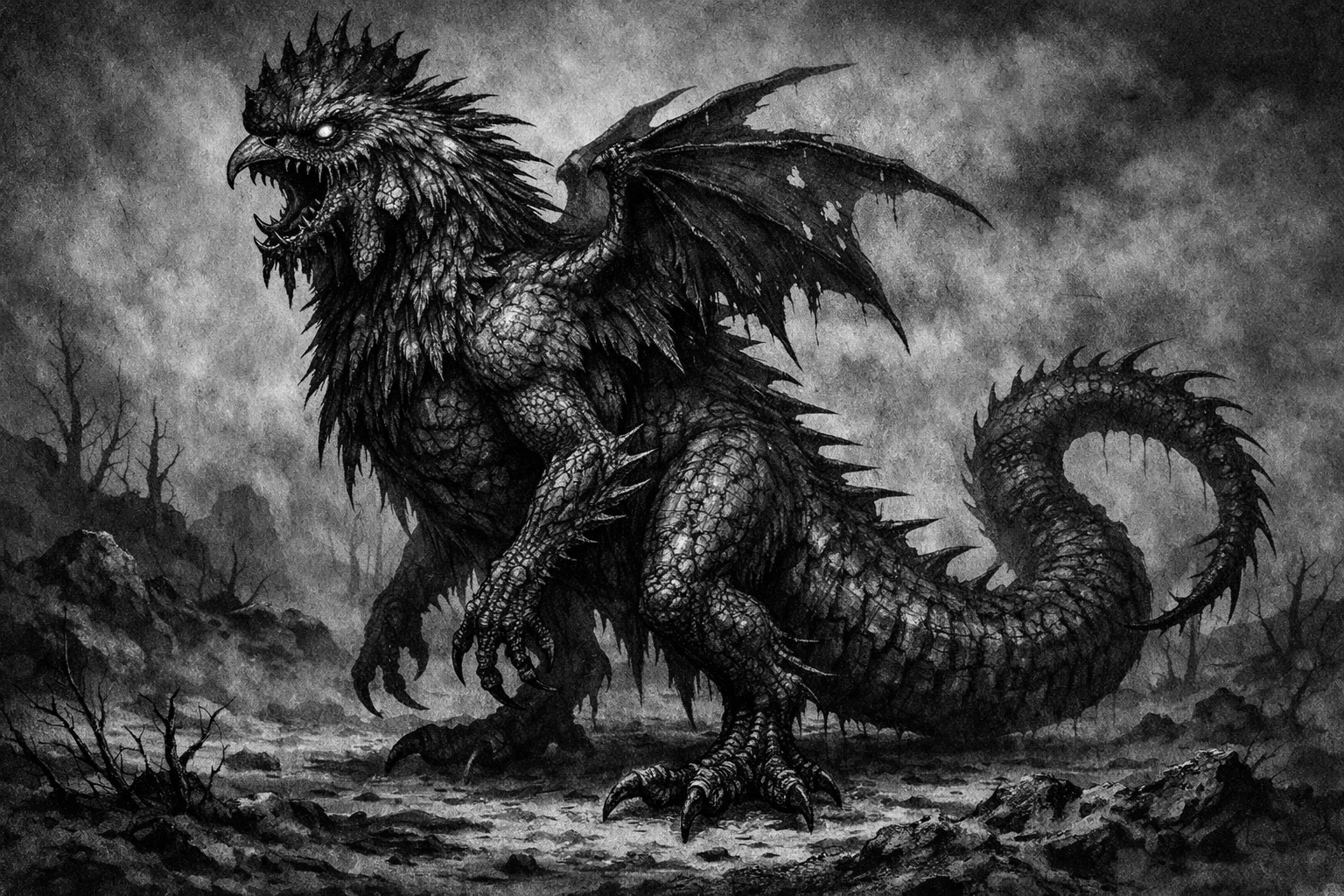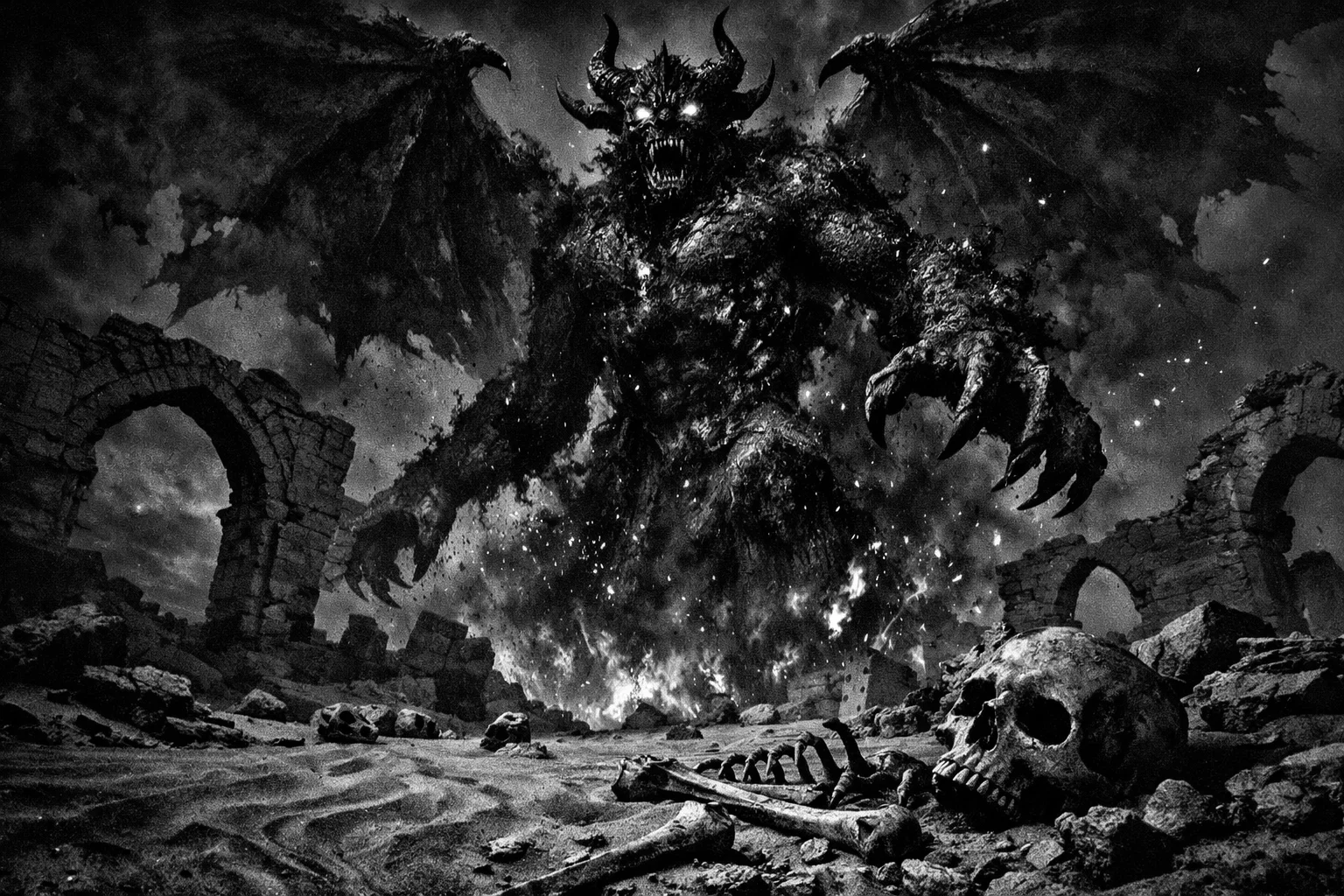Venture into The Willows, a haunting short horror story by Algernon Blackwood that stands as a pinnacle of Algernon Blackwood supernatural fiction. This eerie wilderness tale immerses readers in cosmic horror, where the natural world becomes a conduit for forces beyond comprehension.
Set along the desolate Danube River, The Willows weaves nature horror into a chilling exploration of human fragility, making it a standout among short horror stories. With its dense, evocative prose and creeping dread, this narrative captures the terror of the unknown, perfect for those drawn to eerie wilderness tales.
Summary
Chapter 1: The Danube’s Embrace
After leaving Vienna, the Danube stretched before us, a vast, muddy artery winding through a wilderness of low, alluvial plains. My friend, known only as the Swede, and I paddled our canoe with eager strokes, the sun blazing overhead, its warmth tempered by a breeze that stirred the endless willows fringing the banks.
Their slender branches trailed in the water, like delicate fingers groping for secrets, their leaves whispering ceaselessly, a sound that seemed to carry an undertone of purpose. This was no ordinary river—it was a region of singular desolation, where channels multiplied, islands rose and sank, and the willows stood sentinel, their presence both beautiful and oppressive.
We had been traveling for days, our supplies packed tightly in the canoe, our spirits buoyed by the adventure. The river was our guide, its current strong but capricious, pulling us through a landscape untouched by human hands. As dusk approached, we spotted a sandy island, a small haven amid the shifting waters.
We dragged the canoe ashore, its hull grinding against pebbles, and pitched our tent beneath the willows’ drooping boughs. The Swede, ever contemplative, spoke of the river’s ancient spirit, how it seemed to pulse with a life older than ours. I smiled, unpacking our dinner—bread, tinned meat, and tea brewed over a fire of driftwood.
But as night fell, the air grew heavy, the willows’ rustling intensifying, though no wind stirred. Shadows moved beyond our firelight, forming vague shapes—limbs, perhaps, or eyes—that vanished when I looked. Sleep was restless, haunted by a low, monotonous humming, like voices chanting in a forgotten tongue. I woke once, heart pounding, certain I’d heard my name whispered, but the Swede slept on, and the river’s ceaseless flow offered no comfort.
Morning revealed disquiet. The canoe bore deep scratches, as if raked by claws, and the sand around our tent was marked with funnel-shaped hollows, too large and precise for natural causes. “Wind, perhaps,” I suggested, but the Swede’s eyes narrowed, scanning the willows, which seemed to lean closer, their branches interwoven like a lattice.
We packed hastily, eager to escape the island’s weight, but the river resisted, its eddies swirling against us, the current pulling in contradictory directions. The willows’ whispers followed, a soft, sibilant murmur that seemed to mock our haste, their leaves forming patterns—spirals, faces—that dissolved under scrutiny. I shook off the unease, blaming fatigue, but the air felt charged, as if the landscape itself held a secret it was not yet ready to reveal.
You May Also Like: Who Is Oriens? The Forgotten Infernal King
Chapter 2: The Growing Unease
The river narrowed as we paddled on, its channels twisting through a labyrinth of willows that pressed closer, their branches forming a green tunnel that dimmed the sun’s glare. The water gleamed with an oily sheen, its surface disturbed by ripples that moved against the current, as if stirred by unseen hands.
The Swede’s usual chatter faded, replaced by a tense silence, his eyes darting to the banks where the willows swayed, their movements deliberate, almost rhythmic. I felt it too—a presence in the air, a vibration that set my nerves on edge, like a note struck just beyond hearing. The paddles dipped heavily, each stroke a struggle, as if the river itself conspired to hold us back.
We stopped at noon on a smaller island, its sand littered with broken willow twigs that crunched underfoot like dry bones. Our supplies were dwindling—a tin of biscuits gone, my pipe missing, the Swede’s knife nowhere to be found. “Thieves?” I ventured, but the Swede pointed to a fresh funnel mark, larger than before, its edges smooth and deep, as if something massive had pressed down in the night.
“This isn’t natural,” he whispered, his voice low, his gaze fixed on the trees. I followed his stare and saw them—fleeting shapes among the willows, tall and slender, their forms blending with the foliage, vanishing when I blinked. The air hummed now, a low drone that seemed to rise from the earth itself, threaded with whispers that formed no words but carried intent.
We pushed off again, the canoe rocking as if nudged by invisible currents. The Swede spoke in hushed tones of “elemental forces,” powers older than humanity that used the willows as conduits. His words stirred a chill, but I clung to reason, blaming hunger and exhaustion. Yet the river fought harder, eddies spinning into whirlpools, and the willows seemed to close in, their branches brushing the canoe, soft as fingers but cold as stone.
A splash startled us—an oar gone, swept away by a wave that rose without cause. The Swede’s face was ashen, his hands gripping the canoe’s edge. “They’re watching,” he said, and I couldn’t laugh, not when the willows’ leaves formed patterns—eyes, mouths—that seemed to follow our every move. As dusk loomed, we had no choice but to camp again, choosing a narrow spit of land where the willows stood sparse, their shadows long and sharp in the fading light.
Chapter 3: The Night’s Terror
Darkness fell swiftly, the stars hidden by a thick veil of clouds that rolled in without warning. Our fire burned fitfully, its flames shrinking from the willows, as if repelled by their presence. The Swede sat hunched, his eyes locked on the trees, his hands clutching a stick as if it could protect him.
The humming was louder now, a relentless pulse that vibrated through the ground, the air, our very bones. The willows moved, their branches swaying in a slow, deliberate dance, forming shapes in the moonlight—humanoid, but wrong, their limbs too long, their outlines fluid, like shadows cast by something vast and unseen.
I tried to speak, to break the spell, but my voice faltered, drowned by the river’s roar, which had grown unnatural, a chorus of cries that seemed to call our names. The Swede whispered of “Other Ones,” entities from beyond our dimension, drawn to this desolate stretch where the veil between worlds was thin.
His words were madness, yet I saw them too—figures in the willows, their forms woven from branches, their eyes hollow voids that burned with an alien intelligence. One moved closer, its silhouette towering, tendrils of shadow reaching toward us. I grabbed the remaining paddle, my hands slick with sweat, and swung at the air, striking nothing but feeling a resistance, as if the darkness itself pushed back.
The canoe rocked violently, though no wave touched it, and our tent collapsed, its fabric torn as if by claws. The Swede screamed, pointing to the river, where ripples formed patterns—circles, spirals, faces—that stared back with malevolent intent. The ground shifted, sand sliding into new funnel marks that encircled our camp, closing in like a trap.
The willows’ chant grew deafening, words in a language older than time, promising release if we surrendered, death if we resisted. I stumbled to the fire, feeding it twigs, but the flames died, smothered by a cold that seeped from the trees.
A branch snapped, too close, and a figure emerged—tall, fluid, its form a mass of writhing tendrils, its presence a weight that crushed thought. The Swede fell to his knees, muttering prayers, as the river’s scream became a howl, and the figure reached for him, its tendrils coiling around his trembling form.
You May Also Like: The Smiling Man | Horror Story
Chapter 4: The Sacrifice Revealed
Dawn broke gray and heavy, the fog thicker, clinging to the river like a living thing. The canoe was gone, its ropes frayed as if chewed through, and our supplies lay scattered, half-buried in the sand. The Swede was barely coherent, his eyes vacant, his voice a whisper as he spoke of “gates” and “offerings.”
The willows stood taller, their branches a woven dome that shut out the sky, their whispers now a command, urging us to yield. The funnel marks were everywhere, overlapping, the ground soft and treacherous, as if the island itself was dissolving under the weight of whatever watched us.
I tried to pull the Swede to his feet, to flee, but he resisted, his gaze fixed on the river, where shapes moved beneath the surface—reflections of the willow figures, their forms stretching impossibly tall. One reached out, its tendrils brushing my arm, cold as ice, and I screamed, stumbling back.
The Swede’s voice broke through, hoarse and urgent. “They need a sacrifice,” he said, his eyes wild. “One of us, or both.” I shook my head, refusing the madness, but the evidence was undeniable—the missing oar, the torn tent, the marks closing in. The river roared, its voice a chorus of demands, and the willows leaned closer, their branches curling like fingers, ready to claim.
A memory surfaced, unbidden—of a figure we’d seen days ago, a lone fisherman on a distant bank, his boat overturned, his body gone by morning. Had he been taken, offered to appease these forces?
The Swede lunged suddenly, grabbing my arm, his strength desperate. “It’s me or you,” he whispered, his eyes pleading, then hardening. I pushed him away, but the ground gave way, sand sucking at my boots. The tallest figure emerged from the fog, its form a mass of tendrils, its presence a void that drained light and hope.
It reached for the Swede, coiling around his wrists, and he went limp, his eyes blank, his voice silent. I swung the paddle, shattering branches, but the figure turned, its hollow gaze locking on me. The river surged, the ground split, and as the tendrils reached out, I felt the world unravel, my screams swallowed by a darkness where the willows’ whispers became my own.
You May Also Like: The Lottery Short Horror Story
Chapter 5: The Aftermath
The fog lifted slowly, revealing a river calm and ordinary, the willows standing still, their branches trailing innocently in the water. I woke alone on the island, my clothes torn, my hands bloodied, the Swede gone. The canoe lay beached, intact but empty, its scratches faded, as if the river had erased its own evidence.
The funnel marks were gone, the sand smooth, but the air held a lingering chill, a whisper of the night’s terror. I stumbled to the canoe, my mind fractured, images of tendrils and hollow eyes flashing like afterimages. The Swede’s pack lay open, a single note inside, in his hand: “They took what they needed.”
I paddled alone, the river guiding me toward civilization, its current gentle now, as if sated. The willows watched, silent, their leaves no longer whispering, but I felt their gaze, a reminder of the boundary we’d crossed. Days later, I reached a village, my story met with pitying glances, tales of a fisherman’s fate whispered in taverns.
The Swede was never found, his name added to the river’s silent toll. I burned my journal, its pages filled with sketches of shapes I couldn’t unsee, but the humming lingered in my dreams, a call to return. The willows waited, their roots deep in a world beyond ours, their hunger eternal, ready to claim another who strayed too far into their embrace.

